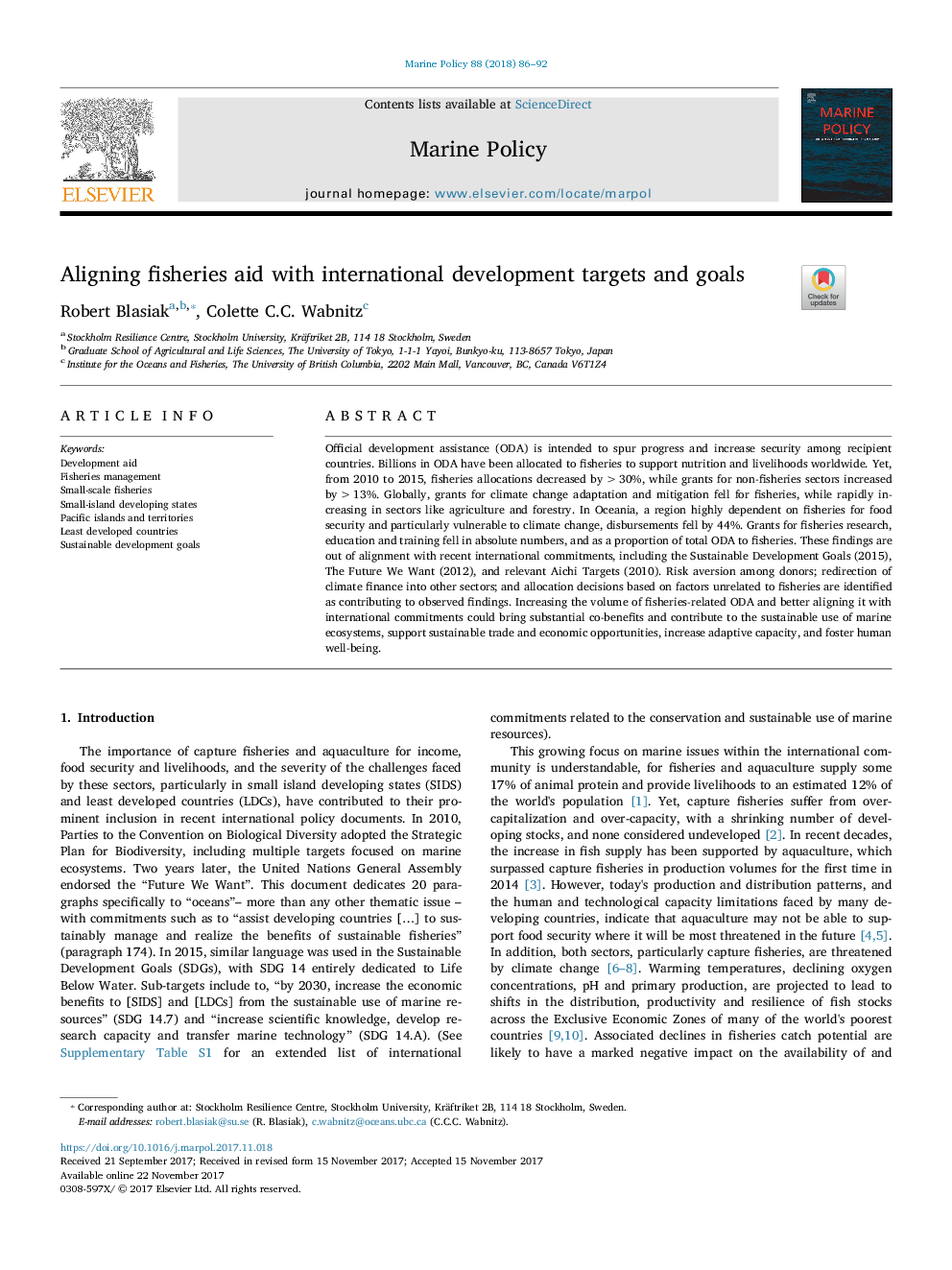ترجمه فارسی عنوان مقاله
هماهنگ کردن کمک های ماهیگیری با اهداف و اهداف توسعه بین المللی
عنوان انگلیسی
Aligning fisheries aid with international development targets and goals
| کد مقاله | سال انتشار | تعداد صفحات مقاله انگلیسی |
|---|---|---|
| 99178 | 2018 | 7 صفحه PDF |
منبع

Publisher : Elsevier - Science Direct (الزویر - ساینس دایرکت)
Journal : Marine Policy, Volume 88, February 2018, Pages 86-92
ترجمه کلمات کلیدی
کمک های توسعه، مدیریت شیلات، ماهیگیری کوچک کشورهای در حال توسعه کشورهای کوچک، جزایر و سرزمین های اقیانوس آرام، کشورهای کمتر توسعه یافته، اهداف توسعه پایدار،
کلمات کلیدی انگلیسی
Development aid; Fisheries management; Small-scale fisheries; Small-island developing states; Pacific islands and territories; Least developed countries; Sustainable development goals;

